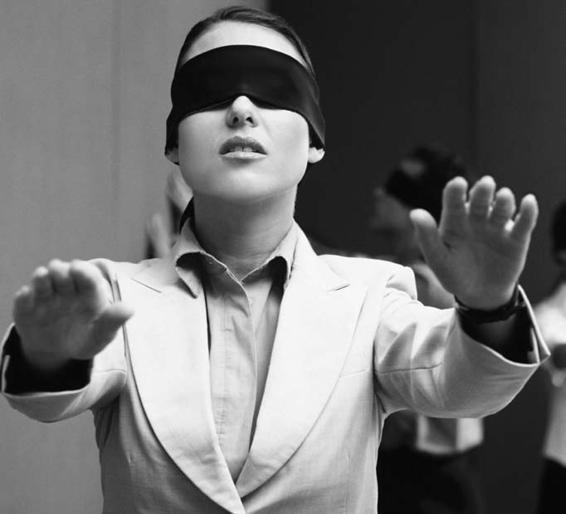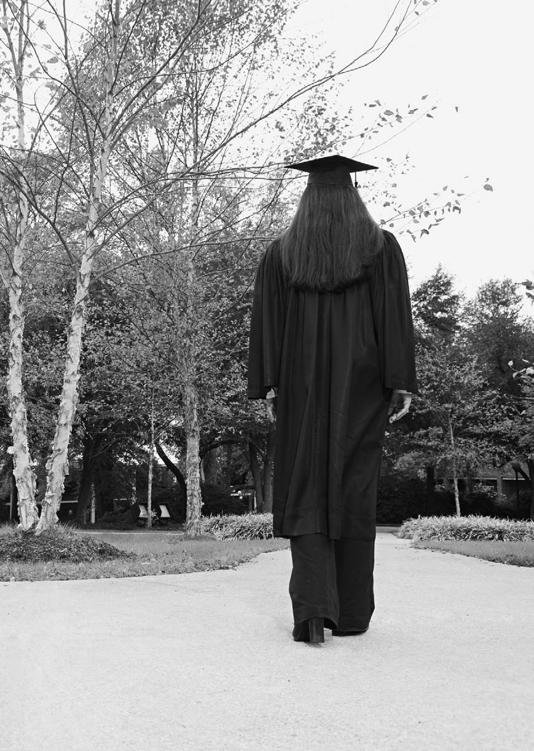What Now? (4 page)
Authors: Ann Patchett

willing to gather them constantly, and from sources you never imagined to be probable.
No one chip gives you the answer for everything. No one chip stays in the same place throughout your entire life. The secret is to keep adding voices, adding ideas, and mov-ing things around as you put together your life. If you’re lucky, putting together your life is a process that will last through every single day you’re alive.
? ? ? ? ? ? ? ? ? ?
There aren’t any Hare Krishnas left in the airports now, or if there are they’re flying home to see their parents like the rest of us, but that doesn’t mean there is any paucity of people who could use a little attention. Once you decide that strangers are more than just 3 9
dangerous accidents waiting to happen, you will find yourself able to listen. How much sadness could be averted by taking the time to notice all the people we have come to ignore? Would we in fact be safer and not more at risk if we asked someone to voice his feelings rather than wait until he looked for other means of making himself heard? The world may be telling you to go forward, to climb and to strive and to move briskly ahead, but while you’re doing all that, be sure to keep your ears open. Divest yourself of prejudice whenever possible. The Hare Krishna may just be the one who sees you to your gate.
? ? ? ? ? ? ? ? ? ?
4 0

This is the moment when you might be wondering if a novelist is really your best source of practical advice. After all, novelists make things up for a living. We’re never going to cure anything. We’re not going to get the treaties signed. But novelists are geniuses when it comes to looking at trees. We’re very good at staying still and seeing what comes next. People like to tell me I have a glamorous life, and maybe it’s true. I was once the answer on
Jeopardy
! (The very hardest answer in the bottom box, and no one knew the question: Who is Ann Patchett?) But I would say that my yearly intake of glamour averages out to be about one hour per month, and that includes giving speeches. Now that’s not bad; lots of people don’t get anywhere close to an hour a month. But as for the rest of my time, the activity I’m most likely to be 4 2

engaged in is staring. If staring ever becomes an Olympic event I’ll be bringing home the gold. While other people go to work, I stare out the window. I stare at my dog. I stare at blank pieces of paper and paragraphs and 4 3

single sentences and a buzzing computer screen. Hours and hours of my day are spent with my eyes glazed over, thinking, waiting, trying to figure things out. The muse is a sweet idea, like the tooth fairy. The muse supposedly comes down like lighting and fills your fingers with the necessary voltage to type up something brilliant. But nobody ever made a living depending on a muse.
The rest of us have to go out and find our inspiration, write and rewrite, stare and stare and stare until we know which way to turn. I dated my husband for eleven years before I married him. It was the staring that made me so hesitant.
I just couldn’t imagine living in a house with another person when so much of my life was spent sprawled across the sofa, eyes wide open, saying nothing at all.
4 5
? ? ? ? ? ? ? ? ? ?
Nothing at all is very much out of fashion these days, as are stillness, silence, and studied consideration. Studied consideration is hard to come by with those little iPod buds stuffed in your ears and the cell phone competing with the Internet. Perhaps we avoid the quiet because we’re afraid that the answer to What now? will turn out to be I don’t know. Child that I was, I thought admission to college had enabled me to wash my hands of uncertainty. Then, during the second semester of my junior year, some insensitive fool struck the first drumbeat that later rose to a deafening tattoo: What are you going to do after college? they wanted to know. What now? What now? What now?
4 6
? ? ? ? ? ? ? ? ? ?
Did they mean, What now as in, What job will you apply for? What exactly are you qualified to do? When I graduated I knew I wanted to be a novelist, but where was the ad in the paper for that one? “Novelist wanted: should be able to stare. Light typing required.” What test could I take that would prove I had completed the necessary course-work? What internship would give me a leg up to be a more successful writer? It wasn’t just that I couldn’t find the key to the door, I couldn’t find the door. I batted around like a shuttlecock after graduation, and when I had exhausted my limited resources I moved home to Tennessee and got a job as a line cook. Oddly enough it turned out to be the 4 7


one thing for which I had solid qualifica-tions. The very cookies that had gotten me in the front door of the president’s house had led to four years of cooking and serving, and when I lost my way that was the direction in which I turned. I had an idea that it was all for the best; I should be doing manual labor, listening to people’s stories in a busy restaurant kitchen and then at night having my head free to write them down. I wanted to be a writer of the people. With practice and patience I had become a decent listener, and now I wanted to speak for the common man.
It might have been a good idea except for the fact that I could never stay awake once I got home. Being on one’s feet all day hauling around boiling kettles of soup, chopping vegetables, making fifteen lunches simulta-neously, is exactly why common men work so 5 0
hard to make sure their children can get a college education.
? ? ? ? ? ? ? ? ? ?
Then one day I burned myself while I was cleaning out the steam table, and the owner of the restaurant fired me for my own safety. I had in essence been told I was unfit to do the one thing I thought I knew how to do, and in that moment I realized I would have to apply to graduate school after all, even though I had previously believed that graduate school was nothing but a big stall.
As quickly as the decision had been made, I discovered that everyone I knew was suddenly interested in my future again.
Where was I going to go to school? What would I study? When would I move? It was a 5 1
wonderful day when I got my acceptance letter from the University of Iowa. I could finally answer their questions again. “Oh,” I said. “I’ve decided to get an M.F. A .”
? ? ? ? ? ? ? ? ? ?
Of course you see where this is going.
Two years of graduate school shot by in about twenty minutes, and when I wandered out I was just as lost as I had been coming in. No one wasted a second before starting to ask the question again. Apparently there is no statute of limitations on grilling someone about the future. Those of you who have already been accepted to medical school, to law school, to the Peace Corps, stay with me here. I know you think this doesn’t apply to you, but it does, because at some point people are going 5 2


